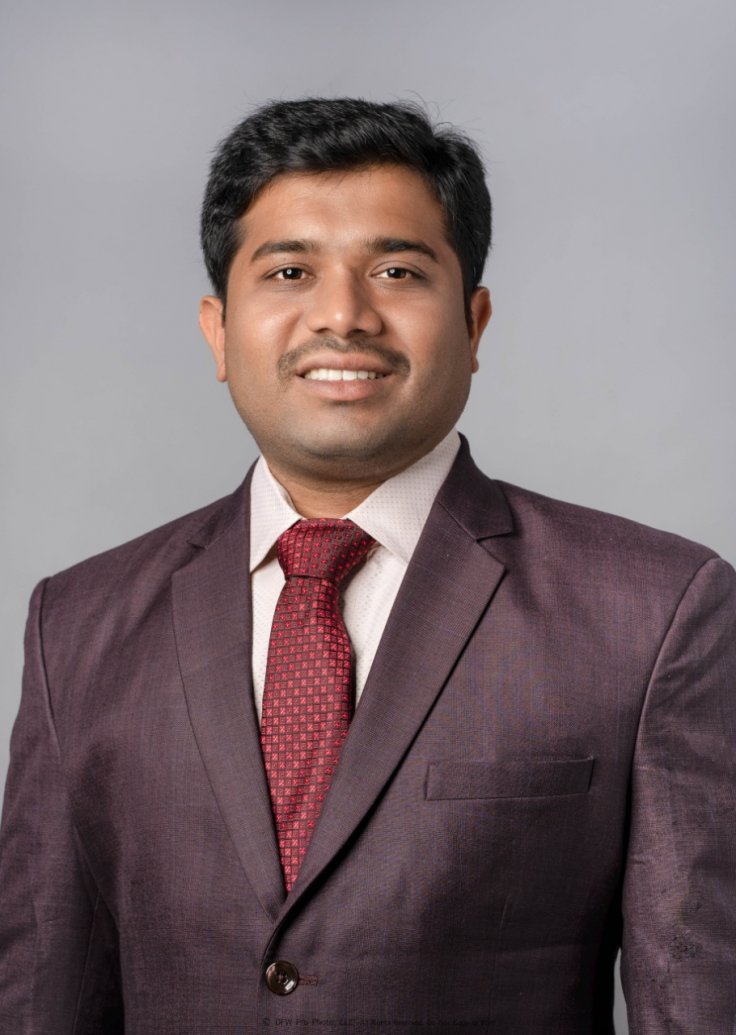
The advancement of medicines and medical treatments is not something that anyone can take on; it requires a specialized skill set that can only be found in professionals like Dr. Yesu Addepalli, who is a synthetic medical chemist at UT Southwestern Medical Center. With a unique background in organic chemistry, medicinal chemistry, and chemical biology training, Dr. Addepalli is equipped to take on some of the most complex studies in the realm of drug discovery. Dr. Addepalli is a critical component in the fight toward a healthier world that offers solutions for complex illnesses and diseases, and his efforts are just getting started.
After studying chemistry, physics, and mathematics at Andhra University in India, Dr. Addepalli went on to get his master's degree in chemistry and his Ph.D. in organic chemistry and the Innovative Drug Research Centre in Chongqing, China. To put it simply, he has spent years cultivating his skills, learning the science behind his profession, and is incredibly well-equipped to support advanced medicinal research and drug development.
Working end-to-end through the design, synthesis, purification, and characterization of bioactive small molecules, Dr. Addepalli has achieved a 300-fold improvement in the activity of the target organic molecules. This research, using high-throughput screening strategies, helps identify small molecules with promising biological activity and leads to the identification of target of interest proteins through photoaffinity labeling. Armed with this information, Dr. Addepalli and his colleagues can move the needle in genetics studies to better understand the treatment of infectious diseases, cancer, and neurodegenerative diseases.
During his academic studies and years of research, Dr. Addepalli focused on biologically active small molecules to help develop therapeutic treatments for a wide range of diseases. By optimizing synthetic methodologies, challenging chemical transformations can be solved, resulting in streamlined bioactive molecule development, which is a major advancement in the medical field.
His work has led to many published papers and academic journals, including a patent publication on "Novel Antiparasitic Compounds and Methods." His ability to break down his research findings into meaningful papers and journals allows other researchers and medical professionals to pick up where Dr. Addepalli left off, embracing the iterative nature of science and medical studies.
Today, Dr. Addepalli works at the University of Texas Southwestern Medical Center in the Ready Laboratory, focusing on the discovery of antiparasitic drugs for leishmaniasis and trypanosomiasis. By identifying molecules that inhibit targeting parasite tubulin polymerization, Dr. Addepalli is enabling the development of compounds that have a high potential to treat trypanosomatid infections. Specifically, these studies assess the utilization of chemical derivatization in a class of compounds, selectively testing derivatives for activity on Leishmania tubulin and trypanosomatids. Dr. Addepalli looks at the stability, solubility, cell permeability, and PK properties when performing proof-of-concept testing in mice. If successful in animal models, these studies could mean revolutionary changes in human treatment down the line.
It is thanks to his unique and robust academic background that Dr. Addepalli is equipped to tackle such intricate and complex challenges. With a full understanding of organic chemistry, medicinal chemistry, and chemical biology training, along with top-notch interpersonal skills, Dr. Addepalli is forging ahead, paving a path for medical advancements, better treatments, and new drug therapies.
It is thanks to experts like Dr. Addepalli and his peers that normal humans have targeted ways to address specific diseases. The normal human population may never recognize the meaning that Dr. Addepalli's work could have in their lives, but he doesn't do this for recognition, he does it to solve problems, help people, and build creative solutions.









